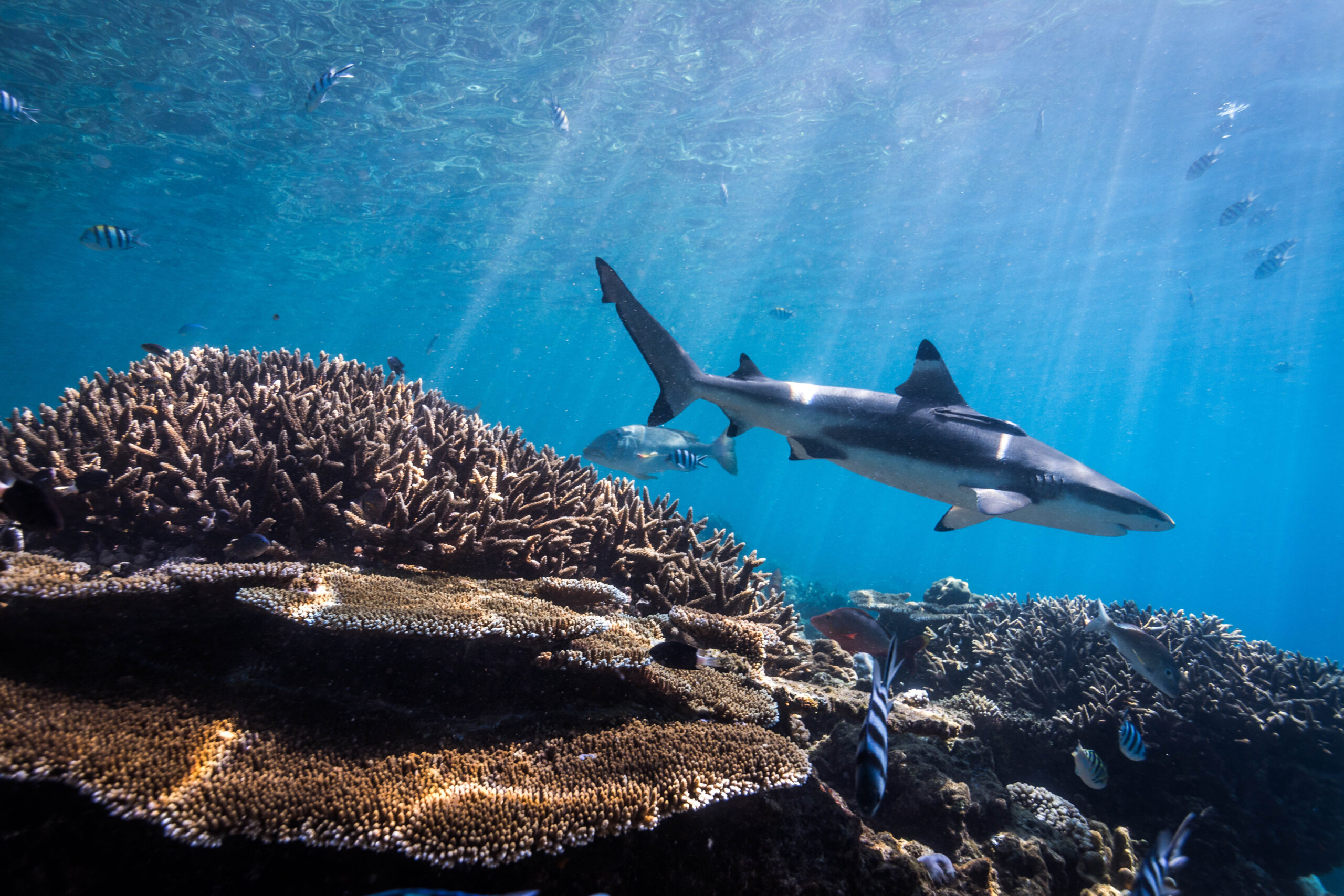Since the early 1980s Caribbean coral reefs have suffered massive losses of corals. Impacts from human population growth, overfishing, coastal pollution, global warming and invasive species have resulted in decrease of coral populations, increases of seaweeds, outbreaks of coral bleaching and disease, and failure of corals to recover from natural disturbances. This study analyses the status and trends of reef communities throughout the wider Caribbean. Metadata on the nature of the reef environment, depth and history of human population growth, fishing, hurricanes, coral bleaching and disease was compiled and analyzed. In some cases, biological information for coral and macroalgal cover, abundance of grazing sea urchin Diadema antillarum, and biomass of fishes such as grazing parrotfish was also obtained. Results imply that the three best predictors of the decline in Caribbean coral cover over the past 30 or more years are: (a) outbreaks of Acropora and Diadema diseases (1970s and early 1980s); (b) overpopulation, including increase in tourism; and (c) overfishing of herbivores, particularly parrotfish. Coastal pollution is also significant and increasingly warming seas is also a threat but so far, extreme heating events have had only localized effects.
In summary, the degradation of Caribbean reefs has occurred in three distinct phases: (1) Massive losses of Acropora (mid-1970s to early 1980s) due to White Band Disease; (2) Increase in macroalgal cover and decrease in coral cover following the mass mortality of Diadema (1983) and (3) Continuation of the patterns established in Phase 2 worsened by more overfishing, coastal pollution, tourism, and extreme warming events. Four major recommendations for management emerge from this report:
- Adopt conservation and fisheries management strategies to restore parrotfish populations;
- Simplify and standardize monitoring of Caribbean reefs and make the results available on an annual basis;
- Foster communication and exchange of information;
- Develop and implement adaptive legislation and regulations to ensure that threats to coral reefs are systematically addressed.
Author: Jackson, J.B.C.
Year: 2014
View Executive Summary
View Full Report
Global Coral Reef Monitoring Network, IUCN, Gland, Switzerland.


